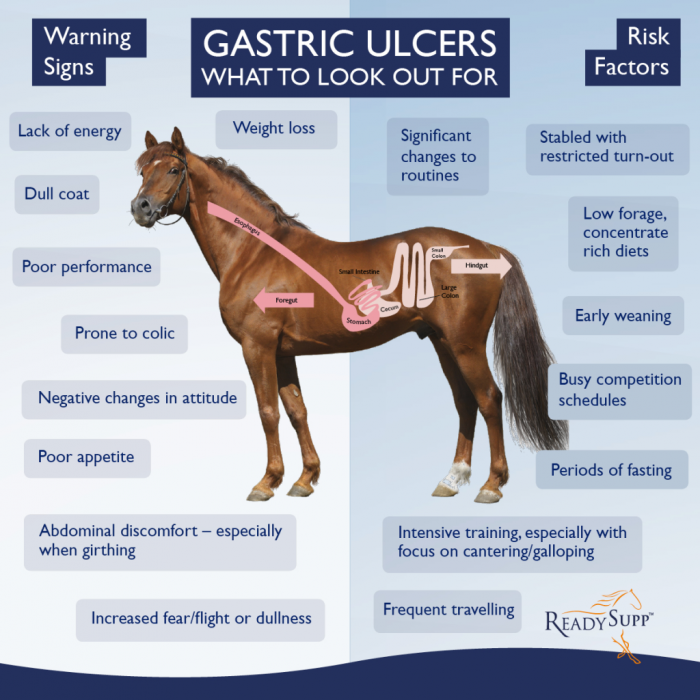
Preventing gastric ulcers during short-term training
It is believed that gastric ulcers are most common in intensively trained sport horses, however also 37% of light trained horses show ulcers. Gastric ulcers can develop in a very short time. A 3-day show for example can already lead to a higher incidence of gastric ulcers. Previous studies shown that omeprazole prevents development and recurrence of gastric ulcers when administered at a dosage of 1 mg/kg, most in 28 days. This study tested the effect of a 8 days administering of omeprazole paste while horses were receiving a light to heavy training.
102 horses were used in this study. The horses received a light or heavy training, adjusted for their current trainings level. All horses were free from ulcers at the start of the study. They received the training at their own barn. The horses in the control group received a placebo paste and the horses in the experimental group a omeprazole paste each day of the 8 day training.
Results show that ulcers can develop within this 8 days of training, but that also a shorter period of administrating omeprazole paste can help preventing ulcers. 88% of the horses that were treated with the omeprazole stayed free from ulcers on the last day of training, whereas 27% of the horses that received a placebo were free from ulcers. Several risk factors for ulcers have been identified in this study and include exercise, stall confinement, transportation, and feeding regimens.
Expert opinion by Annet Veen
The prevention of the development of gastric ulcers can save horse owners a lot of problems and medical costs. This study shows that we can also protect the horse with a short treatment of omeprazole. In my opinion this is very useful when it is expected that the horse is having a period of high risk in developing gastric ulcers. For example, when the horse is transported to a new home, a multiple day show or other stressful situations.
> From: White et al., journal of the american veterinary medical association 230 (11) (2007) 1680-1682. All rights reserved to American Veterinary Medical Association. Click here for the online summary.


